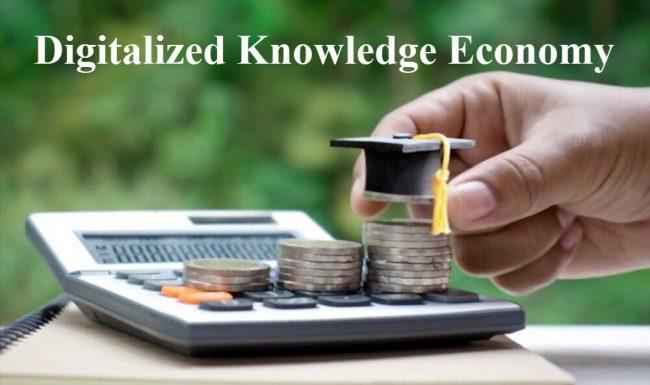
It is possible to see the advanced production systems of that period at every stage of the economic history. To understand the functioning of the economy, it is necessary to examine the most advanced manufacturing practices. Because it is the production systems that fully reveal the forces of humanity. During the industrial revolution, the most advanced production system was mechanized production, which turned into industrial mass production. In our time, it is information economy. Before we produce a definition of the knowledge economy, we can tell what it is not, knowledge economy does not necessarily mean that everything is technology-based. That is, the knowledge economy is not just a structure with a very high-tech private working class.
The first of the most important features of the knowledge economy is that it combines large-scale production with the epic standardization of products and services. Another feature is that it seems to loosen or even reverse the law of diminishing yields, which is one of the cornerstones of the economic system we are in. Thus, in the knowledge economy, there is a potential for continuous innovation. Continuous innovation has the potential to loosen or reverse this most universal constraint in the economic system. Another feature of the knowledge economy is that it brings together the activity of producing and the activity of imagination or discovery.
The best firms become like the best schools and have the potential to radically change the relationship between person and machine. In the current system, economy is the system of allocating scarce resources. In the money-based free market system, production is now largely driven by people’s brains. Whether you are producing something or providing a service, the quality of what is achieved now more than ever depends on the quality of the mental input entering the production stages. Many factories, which are part of the knowledge economy, make us realize that production cannot be sustained with the old methods, it must become smarter and leaner.
Intelligent mindset and technology-oriented solutions are used in the knowledge economy. The deepening and dissemination of the knowledge economy depends primarily on a new kind of education, an analytical and dialectical form of education offered to the whole population. Secondly, it depends on the accumulation of social capital, intensive network of partnerships, and increased ability to cooperate. Another way of spreading and deepening the knowledge economy is the legal and institutional reorganization of the market economy. One of the ways to make every segment of the economy able to produce in technologies that pioneered the knowledge economy in production forms stuck in the old technology is by providing more people with access to productive resources and opportunities. The new system, which emerged as the knowledge economy, should be deepened and widespread in the ways suggested above to increase the productivity of each unit in the economy.
On the other hand, the increasing dependence of production systems on information and technology has started the process of moving the economic system to digital platforms. Digital platforms are, of course, meaningless markets without electricity and internet. Nowadays, we see that many things, from social relations that cover most of our lives to production and sales relations, are now happening on virtual platforms. Part of the economic activity has now begun to move to virtual environments. These are thousands of such as advertisements, customer-oriented production, clothing, grocery, health and cosmetics, technological devices, travel and of course vacation opportunities offered in virtual reality. We will no longer see the developed country, developing country concepts that we are used to in the digital world. Thus, according to the report of the United Nations in 2019, approximately 90% of the digital economy in the world is formed by companies from the USA and China. The remaining 3.6 percent is the share of Europe and 1.3 percent is the share of Africa.
In the same report, we see that these two countries have half of the spending on the internet of things. The digital economy is basically a data-driven economy. The process of creating value in the digital economy includes the stages of data collection, storage, analysis and information transformation. Global internet protocol traffic is a good tool for measuring data flows. This was 100 cigabytes per day in 1992, but more than 45000 cigabytes per second in 2017. In the 2020s, while more and more people are connecting to the internet, we also see that things are starting to connect to the internet with an increasing density. This causes the concept of the internet of things to spread rapidly. In countries that invest in the digital world such as the USA and China, investment in the internet of things is increasing day by day. I will continue to write on the internet of things and digital economy.
this is a very nice article my friend. thank you!